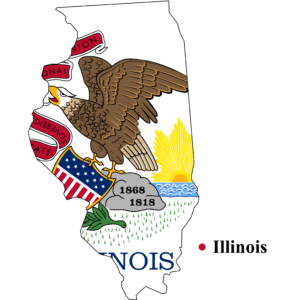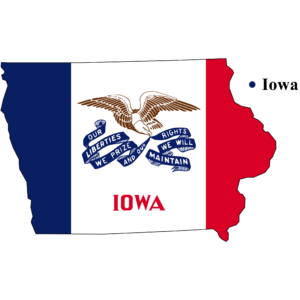INDIVIDUAL STATE CE REQUIREMENTS
PROVIDING CONTINUING EDUCATION TO THE NATIONS FINANCIAL SERVICE PROFESSIONALS
CLICK ON YOUR STATE TO SEE YOUR INSURANCE CE REQUIREMENTS
Instructions: Click on your state to see a summary of state-specific CE requirements. Please make sure to check your state proctor/test monitor requirements. Proctor Affidavit forms links are provided with your state requirements section.
Alabama

ALABAMA STATE REQUIREMENTS
Continuing Education 24 Hours Biennially
Including 3 Hours of Ethics
Generic Monitor/Proctor Affidavit Is Required-CLICK HERE

In Alabama, insurance agents must complete 24 hours of continuing education (CE) biennially, with 3 hours dedicated to ethics. The license renewal date is set to the last day of the agent’s birth month every two years. It’s important to note that agents born in odd-numbered years will renew in odd-numbered years, and those born in even-numbered years will renew in even-numbered years. All agents must provide proof of citizenship as part of the renewal process.
Various courses are accepted for CE credit, including classroom/seminar courses, self-study courses, and online courses. Instructors who teach these courses will receive the same credits as the attendees. All agents must ensure they complete three hours of ethics training each compliance period and are free to take any approved course for CE credit, regardless of their license type.
As of January 1, 2022, there are specific requirements for licensees who sell annuity products. They must complete a new annuity course that includes the new Best Interest rules. Those who have already completed a 4-hour annuity course before this date can complete either a 1-hour annuity best interest course or the new 4-hour version. Agents who have yet to complete a 4-hour annuity course must take the 4-hour annuity best interests course before they can sell annuities. However, residents who have completed similar training in another state will be deemed compliant with this requirement.
There are also specific requirements for Long Term Care (LTC) insurance. Agents must complete an 8-hour initial training course and a 4-hour ongoing training course in every compliance period thereafter. Newly licensed agents are required to fulfill the initial 8-hour training requirement before they can sell LTC insurance.
It’s important to note that excess CE hours cannot be carried over into the next compliance period, and credit will not be given for any course that is repeated within a reporting period. When it comes to final exams for these courses, they must be administered by a proctor who is a disinterested third party, at least 18 years old, and not a family member or financially interested in the student’s success. Co-worker proctors are also not allowed if they are in a direct line of supervision over the student. A Generic Monitor Affidavit is required for these exams.
Finally, there are exemptions to these requirements. Agents who have been licensed for less than 12 months, those holding Limited Line Licenses, and non-residents who have satisfied CE requirements in their resident state are all exempt from these Alabama state requirements.
Alaska

ALASKA STATE REQUIREMENTS
Continuing Education 24 Hours Biennially
Including 3 Hours of Ethics
Alaska insurance agents must complete 24 hours of Continuing Education (CE) every two years, with a mandatory inclusion of 3 hours dedicated to ethics. The license renewal date corresponds with the agent’s birthday, with individuals born in even years renewing in every other even year and those born in odd years renewing in every other odd year.
For CE credit, agents can choose from various courses, including classroom, seminar, instruction by electronic means, self-study courses, and online courses. Instructors can claim one credit hour for each hour spent instructing. However, it's important to note that no more than eight credit hours per renewal can be earned in Management, Marketing, and Sales Training. Additionally, all agents must complete three hours of ethics training each compliance period.
There are specific requirements for licensees dealing with annuity and long-term care (LTC) products. Effective January 15, 2023, those selling annuity products must complete an annual course covering the NAIC Best Interest Standards. Licensees who completed a 4-hour annuity course prior to this date can opt to complete either a 1-hour annuity best interest course or the new 4-hour version, though they only have until July 15, 2023, to choose the 1-hour option. Those who haven’t completed an annuity course must take the 4-hour annuity best interests course before selling annuities. Compliance with similar training requirements from another state deems the agent compliant in Alaska.
Regarding LTC products, producers must complete an initial 8-hour training course before selling, soliciting, or negotiating these products in Alaska. After the initial training, a 4-hour follow-up training course is required every 24 months. Like the annuity requirement, completing similar training in another state that aligns with Alaska's laws is acceptable.
There is a carryover policy in place, allowing agents to carry over no more than eight credit hours to the next compliance period, but ethics credits will carry over as general credits. It is crucial to remember that courses taken multiple times in the same renewal period will not qualify for additional CE credit.
No monitor is required for final exams. The exemptions to these requirements include non-residents who have satisfied any CE requirements in their resident state, anyone holding a temporary or limited lines license, and agents who held an Alaska license before January 1, 1980.
Arizona

ARIZONA STATE REQUIREMENTS
Continuing Education 48 Hours Every 4 Years
Including 6 Hours of Ethics
Arizona insurance licenses are subject to expiration at the end of the licensee’s birth month every 3-4 years, ensuring that the license term does not exceed 48 months. Insurance professionals must fulfill continuing education (CE) credits to maintain an active license status.
Various courses are recognized for CE credits, including classroom sessions, seminars, conferences, teleconferences, webinars, self-study courses, and online courses. Instructors can earn double credit hours when teaching a classroom course to a group of five or more students. However, Arizona licensees serving as instructors can only claim instructor credits once per compliance period.
There are specific subject requirements for the courses taken. All licensees must complete six hours of ethics training. In addition to the general CE requirements, there are particular mandates for those selling annuity and long-term care (LTC) insurance products.
As of January 1, 2021, licensees selling annuity products must complete a new annuity course encompassing the Best Interest rules. Those who have already completed a 4-hour annuity course before this date can take either a 1-hour best interest course or the new 4-hour best interest course, with the 1-hour course needing completion before June 30, 2021. Licensees yet to complete a 4-hour annuity course must take the annuity best interest course prior to engaging in annuity sales.
Regarding LTC insurance products, there is an initial 8-hour training requirement and an ongoing 4-hour training requirement every two years following the initial training. Producers must hold the “Accident and Health or Sickness” line of authority to sell LTC insurance products in Arizona. Non-resident producers compliant with LTC training requirements in their home state will be considered compliant in Arizona, provided the home state’s laws are similar to Arizona’s.
CE credit hours cannot be carried over to the next compliance period, and credit will not be awarded for courses repeated within the same compliance period. Self-study exam policies are relatively lenient, with open-book exams that do not require a monitor.
Exemptions from these CE requirements apply to producers who have been continuously licensed in Arizona since January 1, 1995, and non-residents whose home state maintains a CE requirement, exempting them from Arizona’s CE requirements.
Arkansas

ARKANSAS STATE REQUIREMENTS
Continuing Education 24 Hours Biennially
Including 3 Hours of Ethics
Arkansas Specific Proctor Affidavit Required-CLICK HERE

Arkansas insurance agents must renew their licenses every two years, with the renewal deadline falling on the last day of the agent’s birth month. Licensees with even birth years renew annually, while those with odd birth years renew biennially during odd years.
Various courses are accepted for continuing education (CE) credit, including classroom, self-study, and online courses. Instructors can earn the same credit hours as the students they teach.
Licensees must complete at least three hours of ethics training as part of their CE requirements. Additionally, courses approved for specific license classes can be taken to fulfill CE credits.
There are also specific requirements for licensees who sell annuity products. Effective December 28, 2020, they must complete an annuity course that includes the new Best Interest rules. Those who have already completed a 4-hour annuity course before January 1, 2021, can either complete a 1-hour annuity best interest course or a new 4-hour annuity best interest course within six months (by June 29, 2021). Licensees who still need to complete a 4-hour annuity course must do so before selling annuities.
For long-term care (LTC) insurance products, producers must complete an initial 8-hour, state-approved LTC training course before selling, soliciting, or negotiating such products. Following the initial training, a 4-hour state-approved LTC training course must be completed every 24 months.
Up to 24 credit hours can be carried over to the next compliance period, with any excess hours above the required amount for the next year being lost. Excess ethics hours are carried over as general credits.
Credit will not be granted for courses repeated within two years of their original completion date, including ethics courses.
Self-study exams must be proctored by a Disinterested Third Party, who must not have any family or financial relationship with the licensee. The proctor must provide a signed affidavit confirming that the exam was proctored in accordance with the course provider’s requirements.
Exemptions from these requirements are provided for individuals licensed in Arkansas for less than one year upon renewal, resident producers licensed before July 1, 2003, who are at least 60 years old or have held a license for at least 15 consecutive years, individuals in their first full year of licensure following a change in residency or domicile to Arkansas, third-party administrators who do not solicit business, and non-resident license holders in good standing in their home state.
California

CALIFORNIA STATE REQUIREMENTS
Continuing Education 24 Hours Biennially
Including 3 Hours of Ethics
Producers renewing on or after 3/1/23 will need
1 hour of anti-fraud training was included in their 3 hours of ethics.
The renewal of an insurance license in California is required by the last day of the month the license was initially issued. Various course types are accepted for continuing education (CE) credits, including classroom courses, self-directed PDF or paper textbooks, and online interaction courses. Instructors can earn the same amount of credit hours as their students.
Licensees are mandated to complete a three-hour ethics training as part of their CE requirements. They are also permitted to take courses for CE credits approved for specific license classes. Furthermore, courses exclusively approved as life-only can be taken by producers holding either a life-only license or a life, accident, and health license.
Starting from March 1, 2023, licensees who are renewing must complete one CE hour of anti-fraud training as part of their ethics education. The California Department of Insurance provides this training separately for individuals who have fulfilled their CE requirements and only need the new training for renewal. Participants must also complete an “Agent/Broker Training (Anti-Fraud Awareness)” Certificate of Attendance.
An initial 8-hour state-approved annual training completed for those selling annuity products course must be. Following this, a 4-hour state-approved annuity CE course must be completed every two years. Similarly, agents soliciting Long-Term Care (LTC) Insurance must adhere to specific training requirements, including an initial 8-hour LTC course and ongoing training requirements.
CE hours can be carried over to the next licensing term from the second year of a previous license, provided they stay within the next renewal education requirement. Any excess hours in ethics, annuity, or long-term care credits will be carried over as general credits. However, credit will not be granted for any course repeated within a compliance period.
There is no monitoring requirement for final exams. Nonetheless, there are exemptions available for agents who are 70 years or older and have maintained a good-standing California insurance license for 30 years or more, although they must still meet specific product requirements for annuities, long-term care, and CA Partnership long-term care if they wish to solicit these products. Additionally, producers holding a non-resident license who do not sell annuities, LTC, LTC partnerships, or flood products are also exempted.
Colorado

COLORADO STATE REQUIREMENTS
Continuing Education 24 Hours Biennially
Including 3 Hours of Ethics
Generic Monitor/Proctor Affidavit Is Required-CLICK HERE

The licensing renewal for agents occurs biennially on the last day of their birth month, with those born in even years renewing in even years and those born in odd years renewing in odd years. Various courses are accepted for continuing education (CE) credits, including classroom, lectures, seminars, self-study, and online courses. Instructors can earn an equivalent number of credit hours as their students.
Regarding course subject requirements, agents must complete at least three hours of ethics training each compliance period and at least eighteen hours covering the specific lines of insurance for which they are licensed.
Regarding the annuity requirement, effective from November 1st, 2022, licensees involved in selling annuity products are required to complete a course that includes training on the NAIC Best Interest Standards. Those who had already completed a 4-hour annuity course before this date can take either a 1-hour annuity best interest course or the new 4-hour course, but they must do so before April 30, 2023. Licensees who still need to complete an annuity course must take the 4-hour best interest course before selling annuities. This requirement is also considered fulfilled for residents and non-residents who have completed similar training in another state.
For long-term care (LTC) insurance, producers must complete an initial 16-hour training, with 8 hours focused on general LTC and 8 hours on LTC partnership. Subsequently, they must complete 5 hours of ongoing training every two years. Non-residents who meet similar training requirements in another state are deemed compliant with Colorado's requirements.
Up to twelve credit hours can be carried over to the next compliance period, provided the courses were completed in the final 120 days. However, credit for courses repeated within two years of their original completion date will not be awarded.
Final exams for courses must be monitored by a disinterested third party, with certain restrictions on who can serve as a monitor.
Certain exemptions apply, such as for nonresidents licensed in good standing who have met the CE requirements of their home state, limited lines licensees, and first-time licensees, who have until their second continuation cycle to comply with CE requirements. They must pay a biennial continuation fee to the Colorado Division of Insurance.
Connecticut

CONNECTICUT STATE REQUIREMENTS
Continuing Education 24 Hours Biennially
Including 3 Hours of CT Insurance Law & Regulation and Ethics.
Six (6) of the required hours must pertain directly to the line of authority.
Connecticut Affidavit of Personal Responsibility is needed-CLICK HERE

The agent’s license renewal date is set on the last day of their birth month. Various course formats are accepted for continuing education (CE) credit, including classroom courses, seminars, webinars, self-study, and online courses. Instructors are also eligible to earn the same credit hours as students.
For each compliance period, agents must complete three hours of coursework focused on Connecticut insurance law, regulation, and ethics. Additionally, a minimum of six hours must be dedicated to each line of insurance for which the producer holds a license, such as Life and Health (LH), Property and Casualty (PC), and Variable lines, all considered separate lines.
There are specific requirements related to annuity products. As of March 1, 2022, producers must complete a one-time Annuity Suitability and Best Interest training course of at least four hours before selling, soliciting, or negotiating annuity products in Connecticut. Those who have previously completed a 4-hour annuity course can take a 1-hour annuity best interest course or the new 4-hour course, but this must be completed by August 31, 2022. Those who have yet to meet a 4-hour annuity course must take the annuity best interest course before engaging in the sale of annuities. Non-residents who have fulfilled similar training requirements in another state, including the NAIC Best Interest Standards, will be considered compliant with Connecticut’s requirements.
For long-term care insurance, producers must complete the Partnership’s Certification Training program before they can market, discuss, or sell any Partnership-approved long-term care insurance policy in Connecticut. This training is a one-time requirement and is available to resident and non-resident producers with valid licenses in Connecticut. The training course, eligible for 10 CE credits for Connecticut resident producers, must be completed, and an exam must be passed to meet the Partnership Certification Training requirements.
Agents can carry forward up to 24 excess credits completed from the current renewal period to the next renewal period. However, credit for courses repeated within a compliance period will not be awarded.
Self-study courses can receive CE approval if they include an approved examination of the course material administered by an impartial and disinterested person who is not closely associated with the student. A state-specific monitor affidavit is required to validate this process.
Finally, non-resident CE-compliant agents in their home state are exempt from these requirements.
Delaware

DELAWARE STATE REQUIREMENTS
Continuing Education 24 Hours Biennially
Including 3 Hours of Ethics
License renewal in Delaware occurs on the last day of February in even-numbered years for residents, while non-residents renew in odd-numbered years. Various courses are accepted for continuing education (CE) credit, including classroom, self-study, and online courses. Instructors participating in these courses will receive the same credit hours as attendees. Individuals who have been continuously licensed for 25 years or more or hold professional designations such as CLU or CPCU with annual education requirements are automatically credited 12 hours biennially.
There are no specific course subject requirements for CE credit in Delaware. However, insurance producers selling annuity products must complete a one-time four-credit training course. This requirement also applies to producers with a life insurance line of authority. Completing similar training requirements in another state that aligns substantially with Delaware's regulations will also fulfill this obligation. From August 1, 2021, producers must act in the consumer's best interest when recommending an annuity. Those who have completed the original training before this date must take either a new one-time 4-hour course or an additional one-time 1-hour course within the following six months. As of the effective date, new life insurance licensees are required to complete the new past 4-hour course before selling annuities.
Resident producers holding a health license and soliciting long-term care policies in Delaware must complete at least three hours of training in Delaware long-term care insurance as part of their biennial requirement. This training should cover product knowledge, laws, rules, and regulations. Non-resident producers must complete a state-approved training course before selling, soliciting, or negotiating long-term care products in Delaware.
Delaware allows up to five credit hours to be carried over to the next compliance period, with any excess hours in Ethics, Long-Term Care, or Flood requirements carrying forward as general credit. However, credit will not be granted for any course repeated within a compliance period.
There is no requirement for a monitored final exam in Delaware. Exemptions are available for limited lines, and Delaware offers reciprocity for non-residents who complete their CE requirements in their home or designated home state.
District of Columbia

DISTRICT OF COLUMBIA STATE REQUIREMENTS
Continuing Education 24 Hours Biennially
Including 3 Hours of Ethics
Generic Monitor/Proctor Affidavit Is Required-CLICK HERE

The license renewal for agents in the District of Columbia falls on the last day of the agent’s birth month. Agents have various options for continuing education (CE) credits, including participating in classroom, self-study, and online courses. Notably, instructors participating in these courses will receive the same credit hours as the attendees.
Regarding course subject requirements, licensees are obliged to complete a 24-hour CE requirement through courses approved for the specific line of insurance they are licensed to sell. Just to let you know, any excess ethics hours accrued will not be credited as general hours and will later be lost. Additionally, non-resident producers are required to complete 4 DC-specific credit hours.
For those dealing with annuity products, there is a mandate to complete a one-time annuity training course, approved for at least 4 hours, before they can sell, solicit, or negotiate annuity products in the District of Columbia. This requirement applies to both resident and non-resident producers, with the option for non-resident producers to complete equivalent annuity training in any state.
As of the current guidelines, no Long-Term Care requirement is in place. Similarly, agents cannot carry over credit hours to the next compliance period, and any excess ethics hours will not be credited as general and will be lost.
Agents are advised that credit will not be given for any course repeated within a compliance period. The final exams for these courses must be monitored by a disinterested third party, who cannot be a family member or have any financial interest in the outcome. A General Monitor Affidavit is required to confirm this.
Finally, there are exemptions for non-residents who meet their own state’s CE requirements, as well as those with limited lines.
Florida

FLORIDA STATE REQUIREMENTS
Agents licensed for less than 6 years must complete 24 hours of elective continuing education courses every 2 years [F.S. § 626.2815(3)(a)]; agents licensed for 6 or more years must complete a minimum of 20 hours of elective continuing education courses every 2 years[F.S. § 626.2815(3)(b)]. The 4-hour Law and Ethics Requirement must be completed each compliance period.
Florida Acknowledgement Form-CLICK HERE

In Florida, licenses are granted with the understanding that they are perpetual; however, they will lapse if the licensee goes 48 months without an appointment. Additionally, license holders must fulfill continuing education (CE) requirements, which must be reported biennially by the last day of the agent's birth month. Failure to comply with these educational requirements can result in the cancellation of their appointments.
For continuing education credit, a variety of course formats are accepted. These include classroom and self-study courses, online courses, and seminars, although it should be noted that seminars' approval expires 12 months after the approval date. Instructors participating in these educational activities can earn the same credit hours as those who attend the courses. While active courses do not expire, those not offered for five years will be terminated. All approved courses are considered electives and can be taken for CE for any license type; the sole exception is the 4-hour update courses, which must be specific to the license held.
Regarding the course subject requirements, agents can take any approved course except for the 4-hour update requirement. This requirement dictates that agents must select a course that pertains specifically to the authority of their license type.
Under the stipulations of Florida HB 725, all licensees must complete 4 hours of law and ethics as part of their CE, which must be relevant to their specific license. Those holding multiple licenses need only complete the 4-hour update course in the subject area of one of their license types.
Although Florida has not adopted the NAIC Model Regulation, it has expanded the suitability requirement to include individuals of all ages regarding annuity requirements. For long-term care (LTC) requirements, there is an initial mandate of an 8-hour LTC course that includes state-specific content, followed by a 4-hour LTC course every two years thereafter.
CE credits can also benefit from a carryover provision, which allows up to twenty-four (24) credit hours to be carried into the next compliance period. However, agents cannot earn CE credits for attending or instructing the same course more than once within a 24-month period. The 4-hour update course must be re-submitted annually as a new course with new information and will receive a new course ID upon each approval, avoiding duplication.
Regarding the final examination for these courses, you won't need a proctor. Instead, students must present a sworn acknowledgment to the course provider, affirming they did not use written materials or receive assistance from anyone while taking the exam.
Finally, there are exemptions from these requirements. Licensees within the first 24 months of their licensure are exempt from these continuing education obligations.
Georgia

GEORGIA STATE REQUIREMENTS
Agents licensed 20 years or less require twenty-four (24) CE credit hours biennially / Including 3 hours of ethics.
Agents licensed 20 years or more require twenty (20) CE credit hours biennially / Including 3 hours of ethics.
Generic Monitor/Proctor Affidavit Is Required-CLICK HERE

In Georgia, agents must renew their licenses by the last day of their birth month and provide a citizen affidavit and secure and verifiable identification at each renewal. Continuing Education (CE) credits can be earned through classroom, self-study, and online courses, with instructors receiving the same credit as attendees. CE credits must be relevant to the lines of insurance for which the agent is licensed, except for ethics hours. Agents with a limited subagent license can count up to five credits from courses related to their subagent lines of insurance.
Agents need a one-time 4-hour Annuity Suitability course to sell annuities, with reciprocity for similar courses taken in other states. Long-term care (LTC) insurance requires an initial 8-hour training followed by 4-hour training every 24 months. Non-residents must fulfill Georgia-specific requirements, including a 2-hour Medicaid course related to the Georgia Long-Term Care Partnership Program if they've completed LTC training in another state.
Agents can carry over a maximum of 50% or 12 CE hours to the next period, but excess ethics hours must be used within the current period and cannot be carried over as ethics credits. Repeating a course in the same renewal period won't earn additional credit, although ethics, current issues, or legislative updates courses are exempt from this restriction.
Final exams must be monitored by a disinterested third party, not related by family or financial interest, and a General Monitor Affidavit is required.
Exemptions from these requirements include newly licensed individuals in their first reporting period after completing pre-license education in Georgia, agents with a non-active license who have been licensed for 10 or more years and only receive renewal or deferred commissions, and individuals holding specific professional designations or a major in Risk Management and Insurance from an accredited college, who must complete 12 hours of CE including 3 hours of ethics every two years.
Hawaii

HAWAII STATE REQUIREMENTS
Continuing Education 24 Hours Biennially
Including 3 Hours of Ethics or Hawaii Law
View HI CE Priority List
Generic Monitor/Proctor Affidavit Is Required-CLICK HERE

Effective January 1, 2022, in Hawaii, the license renewal date for agents is scheduled for the last day of their birth month, with renewals taking place in even-numbered years for those with birth months falling on even-numbered months and in odd-numbered years for those with birth months in odd-numbered months.
For Continuing Education (CE) credits, accepted courses include classroom, self-study, correspondence, and online courses. Instructors can receive the same CE credit as course licensees, but only once per two-year renewal cycle. Regarding course subject requirements, licensees must complete three (3) hours of ethics and insurance laws and rules and twenty-one (21) credit hours related to their line of insurance. Any excess ethics hours for producers can count toward their general requirement as long as they are within the license type held.
As for annuity sales, Hawaii has adopted the NAIC Best Interest Standards. Licensees who have completed a 4-hour annuity course before December 31, 2022, must complete an additional 1-hour annuity best interest course or a new 4-hour course by July 1, 2023. Those obtaining a life or variable annuity products line of authority after December 31, 2022, must complete a four-hour best-interest training course before selling annuities.
Hawaii has passed the NAIC LTCI producer training requirement regarding long-term care insurance. However, this training is only mandated once a Partnership program is implemented, and as of the last update, Hawaii still needs to file a State Plan Amendment.
CE credits in Hawaii cannot be carried over to the next compliance period. Credits are earned only once for taking a course in a renewal period; if a licensee takes the same course a second time within the same period, they will not receive additional CE credits for that course code.
A disinterested third party must monitor final exams for CE credits. The monitor must not be related to, be a business associate of, or have a financial interest in the success of the licensee taking the examination. A General Monitor Affidavit is also required.
There are exemptions from the CE requirements. These exemptions apply to licensees licensed for less than two years at their first renewal, those with limited licenses, and non-resident agents, provided their home state has a reciprocal agreement with Hawaii.
Idaho

IDAHO STATE REQUIREMENTS
Continuing Education 24 Hours Biennially
Including 3 Hours of Ethics
In Idaho, licensees must renew their licenses every two years, specifically on the last day of their birth month. For Continuing Education (CE) credits, agents can choose from classroom, self-study, and online courses. Instructors who teach these courses receive one hour of CE credit for every hour they teach.
All agents in Idaho must complete three (3) hours of ethics training each compliance period. Moreover, licensees can fulfill their 24-hour CE requirement with courses approved for any line of authority they possess.
When it comes to annuities, a one-time four (4) hour training must be completed before an agent can sell annuity products. Non-residents who have met training requirements in another state similar to Idaho's law will be considered compliant with Idaho's annuity training requirement. As of July 1, 2021, Idaho requires insurance producers with a lifeline of authority to complete at least four credit hours of annuity best interest CE. Those who have previously completed a four-hour suitability course have six months from this date to complete either a one-hour update course or the new four-hour best interest course. New producers licensed on or after July 1, 2021, must complete the one-time four-hour approved annuity best interest training course. Insurers are charged with ensuring compliance with the Annuity Consumer Protection Act.
For long-term care (LTC) insurance, agents must initially complete eight (8) hours of LTC training, followed by four (4) hours of ongoing LTC training every two years.
Idaho does not allow CE credits to be carried over to the next compliance period. Agents cannot repeat the same course within a renewal period for credit, but they may repeat it in a subsequent renewal period.
No monitor is required for final exams in Idaho's CE courses, which eases the process for agents completing self-study or online classes.
Exemptions from these requirements include limited lines producers, non-resident licensees in good standing with their home states, and agents who are on inactive status. These individuals are not subject to the exact CE requirements as active resident agents.
Illinois

ILLINOIS STATE REQUIREMENTS
Continuing Education 24 Hours Biennially
Including 3 Hours of Classroom or Webinar Ethics
In Illinois, producers must renew their licenses by the last day of their birth month and complete their Continuing Education (CE) at least 30 days before the license expiration to avoid penalties. For CE credit, classroom courses, self-study courses, and online courses are acceptable, and instructors can earn the same number of credits as their students.
Each compliance period, producers must complete three (3) hours of ethics training, which must be conducted in a classroom setting or through a webinar.
Starting August 1, 2023, licensees who intend to sell annuity products must have completed an annuity course that includes the NAIC Best Interest Standards. Those who have already finished a 4-hour annuity course before August 31, 2023, can complete either a 1-hour annuity best interest update course or a new 4-hour course. However, they must do so by February 1, 2024. Licensees who have yet to complete any annuity course must take the 4-hour best interests course before selling annuities by February 1, 2024.
For long-term care (LTC) insurance, Illinois mandates that all LTC producers complete a one-time 8-hour initial training course. Additionally, they must complete a 4-hour refresher course every 24 months. Non-resident producers who have completed a similar LTC Partnership course outlined in the Illinois Administrative Code will meet Illinois's training requirements for the 8-hour- and 4-hour courses.
Regarding CE credits, Illinois allows up to twelve (12) credit hours to be carried over to the next compliance period, with any excess ethics credits being carried over as general credits.
Producers cannot repeat the same CE course more than once in a two-year license term.
There is no requirement for a proctor or monitor for final exams in Illinois's CE courses.
Exemptions from CE requirements in Illinois include individuals with a temporary license, individuals with certain limited licenses such as baggage, limited travel health, trip cancellation, industrial life, or industrial health, and non-resident producers who comply with the CE requirements of their resident states.
Indiana

INDIANA STATE REQUIREMENTS
Continuing Education 24 Hours Biennially
Including 3 Hours of Ethics
Indiana Specific Proctor Affidavit Required-CLICK HERE

In Indiana, agents are required to renew their licenses biennially by the last day of their birth month. Various courses, including classroom, self-study, and online classes, are accepted for Continuing Education (CE) credit, and instructors can earn the same number of credit hours as the students they teach.
During each renewal period, agents must complete 3 hours of ethics training. They can fulfill their 24-hour CE requirement by taking courses approved for any line of authority they are licensed to sell.
Annuity product regulations in Indiana stipulate that producers must complete a one-time training course of at least 4 hours before selling, soliciting, or negotiating annuity products. Non-residents who satisfy similar training requirements of another state are deemed compliant with Indiana's requirement.
Long-Term Care (LTC) insurance has two sets of requirements. For the LTC Partnership Program, agents must initially complete 15 hours of LTC training—8 hours of general LTC and a one-time 7-hour classroom training specific to the Indiana Long-Term Care Program—and then 5 hours of LTC training every two years after that. Those selling only LTC require an initial 8 hours of training, followed by 5 hours every two years. Agents holding an Indiana non-resident health license are exempt from the 8-hour and 5-hour renewal requirements if their state has licensing reciprocity with Indiana. However, non-residents must still take the 7-hour Indiana-specific training.
CE credits in Indiana cannot be carried over to the next compliance period, and credits are not awarded for courses repeated within the same compliance period, including Indiana-specific LTC courses.
Final exams for courses approved for more than 12 credit hours must include 75 questions. Indiana requires producers to sign an affidavit for self-study courses provided by the course provider, attesting that they did not receive outside help while taking the exam. A second producer or a representative from a testing center that administers exams for professional designations must witness and verify the exam's integrity. A specific Monitor Affidavit is required for this process.
Exemptions to the CE requirements include non-residents who meet their home state's CE requirements. While non-resident agents are exempt from Indiana's LTC requirement, they are not exempt from the Indiana LTC Partnership Program requirement.
Iowa

IOWA STATE REQUIREMENTS
Continuing Education 36 Hours Triennially
Including 3 Hours of Ethics
Iowa State Specific Proctor Affidavit Needed-CLICK HERE

In Iowa, the license renewal date for agents is set to coincide with the last day of their birth month. To meet continuing education (CE) requirements for license renewal, a range of courses are accepted, including classroom courses, classroom equivalent courses, and self-study method courses. As for the specific subject requirements, agents must complete at least three (3) hours of ethics training each compliance period, and a minimum of 18 hours must be conducted in a classroom or through equivalent coursework.
Regarding annuity products, a significant change was instituted on January 1, 2021, following Bulletin 20-12 issued by the Iowa Insurance Division (IID). Producers wishing to sell annuities must complete a one-time four-credit training course approved by the commissioner and provided by an education provider. If a producer had completed an annuity training course prior to this date, they have until July 1, 2021, to either finish a new four-credit training course or an additional one-time one-credit training course focusing on appropriate sales practices, replacement, and disclosure requirements under the amended regulation. Importantly, annuity CE courses approved by the commissioner on or after October 1, 2020, categorized as "annuity products-best interest," will fulfill this requirement. For non-residents, completing similar annuity best interest training requirements from another state will be recognized as meeting Iowa's requirements.
Long-term care insurance sales also carry specific training obligations. Initially, producers must complete a one-time 8-hour LTC training course in a classroom setting. To continue selling LTC insurance, they must complete a 4-hour LTC training every three years. Non-resident producers can meet Iowa's LTC training requirement by completing similar training in another state or, if such training has yet to be taken, by completing an approved course in Iowa.
Just so you know, CE credits cannot be carried over to the subsequent compliance period in Iowa. Credit will also not be granted for courses repeated within the same compliance period.
When it comes to the final examination for these courses, it must be monitored by either a disinterested third party, a provider representative, or a specific Monitor Affidavit must be submitted, ensuring the integrity of the examination process.
Finally, there are exemptions available. Specifically, a non-resident producer who resides in a state where CE is mandatory is exempt from these requirements in Iowa.
Kansas

KANSAS STATE REQUIREMENTS
Continuing Education 18 Hours Biennially
Including 3 Hours of Ethics
Effective January 1, 2022, resident producers in Kansas who hold a major line(s) of authority, such as Life and Health, will see a change in their continuing education requirements for biennial renewal. They will now need to complete 18 hours, with at least three hours dedicated to ethics. The biennial renewal dates for resident and nonresident producer licenses will also change from the producer's birthday to the last day of their birth month. This change is based on whether the producer was born in an even or odd year, corresponding with renewals occurring in even or odd years.
For Continuing Education (CE) credits, Kansas accepts classroom courses, self-study courses, and online courses. Instructors teaching these courses can earn the same credit hours as the students enrolled.
During each compliance period, agents must complete at least one (1) hour of ethics. All courses must be approved for the lines of insurance for which the agent is licensed. Any excess ethics credits earned can be applied to other CE requirements within the current biennium.
Regarding annuity products, Kansas requires producers to complete a one-time annuity training course that has been approved for at least 4 hours before they can sell, solicit, or negotiate annuity products.
For Long-Term Care Partnership (LTCP) policies, there is an initial 4-hour LTCP training requirement for all Kansas producers involved in selling, soliciting, or negotiating these policies. After completing this initial training, LTCP producers must fulfill an ongoing 1-hour state-approved Kansas LTCP training requirement every two years.
CE credits in Kansas cannot be carried over to the next compliance period, and agents are not permitted to earn credit for repeating a course within the same compliance period, including ethics courses.
As of July 1, 2021, resident producer self-study-type CE courses in Kansas no longer require a proctor for the exam portion, streamlining the process for fulfilling CE requirements.
Exemptions to these requirements are granted to non-residents who meet the CE requirements of their home state.
Kentucky

KENTUCKY STATE REQUIREMENTS
Continuing Education 24 Hours Biennially
Including 3 Hours of Ethics
In Kentucky, agents are required to renew their licenses on the last day of their birth month. Those born in an even-numbered year must complete their Continuing Education (CE) in even-numbered years, while those born in an odd-numbered year must complete their CE in odd-numbered years.
The courses accepted for CE credit include classroom courses, webinars, self-study courses, and online courses. Instructors teaching these courses can receive the same number of CE credits as their students.
Agents must complete three (3) hours of ethics training every compliance period. Additionally, at least six (6) hours must be in courses approved for the lines of insurance for which the agents are licensed. The remaining sixteen (16) hours of CE can be completed in any Kentucky-approved course.
Kentucky implemented a new regulation on annuity sales effective January 1, 2022, requiring agents to act in the consumer's best interest when recommending annuities. This standard of conduct is part of the expanded training requirement. Agents licensed before this date had until June 30, 2022, to complete the necessary training. Those who had completed the original annuity training were required to take either a new 4-hour course or an additional one-time 1-hour course. Agents obtaining a life insurance license on or after January 1, 2022, must complete a new past 4-hour course before they can sell annuities. If an agent has complied with another state’s training requirements substantially similar to Kentucky's, they will be considered compliant with Kentucky's requirements.
For long-term care insurance, Kentucky requires an initial 8-hour LTC training followed by a 4-hour LTC training every 24 months. Non-residents who satisfy the training requirements of another state similar to Kentucky’s law are deemed compliant with Kentucky’s LTC requirement.
Kentucky allows agents to carry up to twelve (12) credit hours to the next compliance period. Any excess hours in ethics will be carried over as general credit.
Credits will not be awarded for courses repeated within the same compliance period.
There is no requirement for a proctored final exam in Kentucky, making it more convenient for agents to complete their CE.
Exemptions from the CE requirements are available for individuals licensed for less than a year during their first compliance period. However, they are not exempt from the next compliance period. Non-resident agents who have met the continuing education requirements of their home state through reciprocity are exempt, as are individuals with limited lines of authority.
Louisiana

LOUISIANA STATE REQUIREMENTS
Continuing Education 24 Hours Biennially
Including 3 Hours of Ethics
In Louisiana, the license renewal process is based on the license number and birth month of the licensee. Licenses ending in an even number are renewed in even-numbered years, and those ending in an odd number are renewed in odd years, with the renewal date being the last day of the licensee's birth month.
For Continuing Education (CE) credits, agents can choose from classroom, self-study, and online courses. Instructors teaching these courses can receive the same credit as their students. The subjects of the CE courses must be related to the lines of insurance where the agent holds a license.
Louisiana producers must complete a one-time training course of at least 4 hours regarding annuity products before they can sell, solicit, or negotiate annuity contracts. Producers who have satisfied similar training requirements in another state are deemed to have met Louisiana’s requirements. As of March 2021, the state is considering the Best Interest Model Regulation in the legislature.
Agents must complete an initial 8-hour state-approved LTC training course for long-term care insurance. After this initial training, resident producers must complete a 4-hour ongoing training course every two years to remain compliant.
Louisiana allows agents to carry up to ten (10) credit hours to the next compliance period. A CE course may be repeated for credit if at least 24 months have elapsed between completions, updating the previous language that restricted credit for the same course to once per renewal period without a specific timeframe for repetition.
There is no requirement for a proctor for final exams, which simplifies the process for self-study or online course completion.
Exemptions from the CE requirements in Louisiana include newly licensed agents who are not required to meet CE requirements for their first renewal period. Also exempt are individuals certified in industrial fire, fidelity, and surety or licenses for lines that do not require an examination. Producers 65 years or older before January 1, 2012, with at least 15 years of experience, are exempt from CE requirements. This exemption does not apply to producers who reached 65 after January 1, 2012. However, those exempt before this date will continue to maintain their exemption. Non-resident agents may be exempt if they meet the CE requirements of their home state.
Maine

MAINE STATE REQUIREMENTS
Continuing Education 24 Hours Biennially
Including 3 Hours of Ethics
Effective January 1, 2022, resident producers in Maine who are authorized for significant lines of insurance, such as Life and Health, will see a change in their Continuing Education (CE) requirements. For the biennial renewal period, they must complete 18 hours of CE, with a minimum of three (3) hours dedicated to ethics. The remaining 15 hours can be taken in any subject area approved by the Department, giving producers more discretion in their CE choices. Additionally, there is no longer a cap on the hours an agent may take in "Insurance Agency Management" (IAM) CE courses.
Regarding license renewal, the due date for completion of CE is the last day of the agent’s birth month every two years, with agents born in even-numbered years renewing in even years, and agents born in odd-numbered years restoring in odd years.
Maine accepts classroom, self-study, and online courses for CE credits. Producers must complete at least three (3) hours of ethics every compliance period. They can fulfill their 24-hour CE requirement by taking courses approved for any line of authority they hold.
As of January 1, 2022, licensees must complete a new annuity course incorporating the new Best Interest standards for annuity products. Those who have already completed a 4-hour annuity course before this date can complete a 1-hour annuity best interest update course or a new 4-hour best interest course. Licensees who still need to complete a 4-hour annuity course must take the new best interest course before selling pensions.
In terms of Long-Term Care (LTC) insurance, producers must initially complete an 8-hour state-approved LTC training course. After the initial training, they must complete a 4-hour state-approved LTC training course every renewal cycle. Non-resident producers who satisfy the training requirements of another state similar to Maine’s will be deemed compliant with Maine’s requirement.
Maine does not allow credit hours to be carried over to the next compliance period. Additionally, agents cannot receive credit for repeating a course within the same compliance period.
As of July 1, 2021, Maine no longer requires a proctor for the final exam of resident producer self-study-type CE courses.
Exemptions from the CE requirements are provided to individuals licensed less than one year before their first CE compliance date, as they are exempt from that first reporting period. Non-residents who meet their home state's CE requirements are exempt if their home state is Maine. Furthermore, those with limited lines are also exempt from CE requirements.
Maryland

In Maryland, the license renewal date for insurance producers is set for the last day of their birth month. As of January 1, 2020, producers must complete their Continuing Education (CE) 15 days before the renewal date. Furthermore, since January 27, 2020, licensed insurance producers who have held their licenses for 25 or more consecutive years since October 1, 2008, must complete 8 hours of continuing education in each renewal period.
For CE credit, various courses are accepted, including classroom, webinars, self-study, and online courses. However, only 50% of CE credits can be earned online. Instructors teaching these courses are entitled to receive 1.5 times the credit hours that the students make.
Regarding course subject requirements, all courses must be approved for the lines of insurance for which the license is held. Every licensed insurance producer must obtain at least 3 hours of CE in Ethics. Those having combined Life and Health (LH) / Property and Casualty (PC) licenses must complete 6 hours in each LH and PC. Excess Ethics credits cannot be applied to cover the minimum hours needed for each license-specific requirement.
Effective October 8, 2022, licensees who sell annuity products must complete a course covering the NAIC Best Interest Standards. Licensees who have previously completed a 4-hour annuity course before this date can complete either a 1-hour annuity best interest course or a new 4-hour best interest course, but they must do this by April 8, 2023. Those who still need to complete an annuity course must take the 4-hour annuity best interest course before they can sell pensions. Both residents and non-residents who have completed training that includes the NAIC Best Interest Standards in another state with laws similar to Maryland’s will be deemed compliant.
For Long-Term Care (LTC) insurance, an initial 8-hour NAIC training is required, followed by 4 hours of training in every subsequent compliance period. This training requirement came into effect on September 10, 2008. Although Maryland law mandates two hours of CE in LTC every two years, completing the 8-hour initial training and ongoing 4-hour training each compliance period satisfies the LTC regulation and the previous law.
CE credit hours cannot be carried over to the next compliance period in Maryland. Furthermore, credit will not be given for a course repeated within the same compliance period. If courses are taken in two consecutive reporting periods, there must be a 6-month interval between completion dates.
A closed-book format is used for the final exam; no monitor is required.
Exemptions from these requirements apply to non-residents who have met the CE requirements of their home state.
Massachusetts

In Massachusetts, the Continuing Education (CE) compliance period for license renewal is set at every three years, aligning with the licensee's date of birth. Various courses are accepted for CE credit, including classroom courses (excluding 1-hour), self-study courses, online courses, and webinars. Instructors can receive the approved number of credit hours for teaching a course, but this can only be claimed once every three years.
Producers can complete their CE requirements by taking courses approved for any line of authority they hold.
As of December 9, 2022, licensees selling annuity products must complete a course covering the NAIC Best Interest Standards. Those who have already completed a 4-hour annuity course before this date have until June 1, 2023, to either take a 1-hour annuity best interest course or the new 4-hour course. Licensees who still need to complete an annuity course must do so before they can start selling annuities.
Both residents and non-residents who have completed training, including the NAIC Best Interest Standards in another state with laws similar to those of Massachusetts, will be considered compliant with Massachusetts's requirements.
Regarding Long-Term Care (LTC) insurance, individuals must be licensed as insurance producers for health, accident, or sickness and complete a one-time training course. This course must be at least eight (8) hours, with ongoing training of at least four (4) hours required every 24 months. For residents and non-residents who have completed an initial or ongoing NAIC LTC Training course in another state, a 2-hour MassHealth Training course specific to Massachusetts is mandatory.
Massachusetts allows up to 45 credit hours to be carried over to the next compliance period.
Credits will not be awarded for courses repeated within three years of the first completion date.
Self-study examinations must be proctored by an approved disinterested third party, ensuring that the student completes the exam on a closed-book basis without assistance. The proctor cannot be a family member or financially interested in the outcome. A specific Monitor Affidavit is required for this process.
Exemptions from these requirements include non-residents who meet CE requirements of their home state or any other state where they hold an active license. Additionally, individuals licensed before April 4, 1983, are exempt from CE requirements as long as they remain continuously licensed.
Michigan

In Michigan, resident individual producer licenses are perpetual, contingent on the licensee's compliance with Continuing Education (CE) requirements. These requirements must be fulfilled every two years, based on the first day of the producer's birth month in odd or even-numbered years.
For CE credit, various courses are accepted, including classroom, self-study, and online courses. Instructors teaching these courses can receive the same credits as the attendees.
Producers must complete three (3) hours of ethics training during each compliance period. Additionally, they have the flexibility to complete twenty-one (21) hours in any line of insurance they hold.
Regarding annuity sales, a one-time training course covering both Annuity Suitability and Best Interest Standards, lasting 4 hours, must be completed before selling annuity products. This requirement also applies to non-residents who have completed similar training in another state, including the NAIC Best Interest Standards and with laws identical to Michigan’s.
For Long-Term Care (LTC) insurance, producers who sell, solicit, or negotiate LTC partnership insurance must complete a one-time training course of at least 8 hours. After this initial requirement, producers must complete a 4-hour LTC training every 24 months. This training requirement also applies to non-residents who have completed similar training in another state that aligns with Michigan’s laws.
Michigan allows licensees to carry up to 12 hours to the following license renewal period. Any excess hours earned in ethics will be carried over as general credit.
Courses cannot be repeated more than once in a two-year license term. Also, courses carried forward will count as duplicates if completed again in the current renewal cycle.
Self-study exams in Michigan are closed-book and must be monitored by a disinterested third party, defined as someone with no family or financial relationship to the student. A General Monitor Affidavit is required for this process.
Exemptions from CE requirements are available for individuals licensed 23 months or less at the time of their first CE compliance date, as they are exempt for that first reporting period. Hardship waivers are available for those dealing with a terminal illness of themselves or an immediate family member requiring significant care or for military duty. Non-residents who meet their home state's CE requirements automatically comply with Michigan’s requirements.
Minnesota

In Minnesota, the license renewal date for insurance producers is set as the last day of their birth month. Agents must ensure that their Continuing Education (CE) credit hours are posted before their license expiration date and before applying to renew their insurance license(s).
Various courses are accepted for CE credit, including general classroom courses, company-sponsored training, and distance learning programs. However, up to half of the credit hours per licensing period can be sponsored by, offered by, or affiliated with an insurance company or its agents. Additionally, agents may complete up to 8 hours of CE daily. For courses worth more than 8 hours, the exam must be spread over multiple days. For instance, a 24-hour course must be completed over at least three days. Instructors who teach these courses can receive extra credit by submitting an "Application for Instructor Extra Credit" through the Education Provider, with the Department of Commerce reviewing and applying the appropriate credits. Repetition rules for courses also apply.
During every compliance period, licensees must complete three (3) hours of ethics training. They can fulfill their CE requirement by taking courses approved for any line of authority they are licensed in.
Regarding annuity products, as of January 1, 2023, licensees who sell annuity products must complete a course covering the NAIC Best Interest Standards. Those who have already completed a 4-hour annuity course before December 31, 2022, have until July 1, 2023, to complete either a 1-hour annuity best interest course or a new 4-hour course. Licensees who still need to complete an annuity course must take the 4-hour best interest course before selling annuities. Both residents and non-residents who have completed training, including the NAIC Best Interest Standards in another state with laws similar to Minnesota's, will be considered compliant with this requirement.
For Long-Term Care (LTC) insurance, producers must initially complete an 8-hour state-approved LTC training course. Following this, they must complete 4 hours of state-approved LTC training every 24 months. This requirement also applies to non-residents who satisfy the training requirements of another state with laws similar to Minnesota’s.
Minnesota does not allow credit hours to be carried over to the next compliance period.
Credits will not be awarded for courses repeated within the same compliance period.
For final exams, internet course examinations can be encrypted online or paper examinations monitored by a proctor. Online exams do not require a monitor, but a specific Monitor Affidavit is needed for paper exams.
Exemptions from these requirements include individuals licensed less than six months before their first renewal date, as they are exempt from their first reporting date. Additionally, individuals holding a limited-lines license that does not require an exam are exempt from these CE requirements.
Mississippi

Mississippi Proctor/Monitor Affidavit Required-CLICK HERE

In Mississippi, the license renewal date for agents is set as the last day of their birth month. Various courses are accepted for Continuing Education (CE) credit, including classroom courses, teleconferences, webinars, self-study, and online classes. Instructors teaching these courses receive the same credit hours as the attendees, but only for their first presentation. The rules on repetition also apply to instructors.
Each compliance period, agents are required to complete three (3) hours of ethics training. Furthermore, the courses they choose must be approved for the lines of insurance to which they are licensed.
Starting from January 1, 2022, Mississippi implemented an amendment requiring producers to act in the consumer's best interest when recommending an annuity. This change expands the training requirement to include this new standard of conduct. Producers licensed before this date had until June 30, 2022, to complete the training. Those who had already completed an annuity training course approved by the department before January 1, 2022, could choose either a new 4-hour course or an additional one-time 1-hour course. Producers obtaining a life insurance license on or after January 1, 2022, must complete the new past 4-hour course before they can sell annuities. So that you know, compliance with training requirements from another state substantially similar to Mississippi's will be considered sufficient. Additionally, insurers are responsible for providing product-specific training.
As of the current update, Mississippi has no specific Long-Term Care requirement.
CE credit hours cannot be carried over to the next compliance period.
Credit will not be awarded for courses repeated within the same compliance period.
A disinterested third party must monitor Final exams in Mississippi, which means the monitor should not have an insurance business or family relationship with the student. A specific Monitor Affidavit is required for this process.
Exemptions from these CE requirements apply to non-residents who meet the CE requirements of their home state.
Missouri
Missouri State Specific Monitor/Proctor Form-click Here

In Missouri, the license renewal date for insurance producers is set for every two years on the producer's birth date. A variety of courses are accepted for Continuing Education (CE) credit, including classroom courses (with a maximum credit limit of 16 hours), self-study courses (also with a total credit limit of 16 hours), and online classes. Instructors teaching CE courses receive the same amount of credit as their students.
Producers must complete three (3) hours of ethics training each compliance period. Producers must take courses approved for the line of insurance they are licensed to sell. For those authorized in multiple lines of authority, there is no requirement to divide the educational hours evenly between these lines.
For annuity products, producers holding a life insurance line of authority and intending to engage in the sale of annuity products must complete a one-time four-hour training course. This requirement applies to resident and non-resident producers across all types of annuity products. Non-residents who satisfy the training requirements of another state with laws similar to Missouri’s will be considered compliant with Missouri's annuity requirement.
Regarding Long-Term Care Partnership (LTCP) training, producers must initially complete an 8-hour LTCP training course, followed by 4 hours of training within each license renewal cycle after that. Non-residents who meet the training requirements of another state similar to Missouri’s law will also be deemed compliant with Missouri's requirement.
Missouri allows excess CE credit hours to be carried forward to the compliance period immediately following the current period. However, credit will not be given for any course repeated within a compliance period.
For final exams in self-study courses, a disinterested third party must proctor the exams. Open-book examinations are not permitted, and licensees are not allowed access to books, notes, or any other reference materials or information that could provide answers to the exam questions.
Exemptions from these requirements include non-residents who meet the CE requirements of their home state and individuals holding limited lines licenses.
Montana
Montana State Specific Proctor/Monitor Form Required-CLICK HERE
In Montana, the license term for insurance producers is set at every two years, with the renewal and Continuing Education (CE) completion deadlines based on the licensee’s birth month in even or odd-numbered years. Licensees born in an even-numbered year must complete their CE in even-numbered years, while those born in an odd-numbered year must do so in odd-numbered years. The expiration date indicated on the Montana license serves as the CE compliance deadline. Resident licensees do not need to renew their license. Still, they must report their CE completions to the Office of the Insurance Commissioner on or before their license expiration date to maintain a valid insurance license.
Accepted courses for CE credit include classroom courses, self-study courses, and online courses. Instructors teaching these courses can receive two times the number of approved credit hours.
Both resident and non-resident licensees must complete one (1) credit hour on Legislative changes in Montana Insurance Statutes and Administrative Rules. Licensees, except those with Limited Lines only, may fulfill their CE requirements with courses approved in any line of authority.
Regarding annuity sales, effective October 1, 2021, producers engaging in the sale of annuity products must complete a one-time four-credit training course approved by the insurance department. Producers who had completed an annuity training course approved by the department before this date must, by April 1, 2022, complete either a new four-credit training course or an additional one-time one-credit training course. Insurers in Montana are responsible for verifying producer compliance before allowing the sale of their annuity products.
For Long-Term Care (LTC) insurance, producers must initially complete an 8-hour LTC course, followed by a 4-hour LTC training every two years after that. Non-residents who satisfy similar training requirements of another state that align with Montana’s laws will be deemed compliant with Montana’s requirements.
CE credits in Montana cannot be carried over to the next compliance period.
Credit will not be given for courses repeated within the same two-year biennial period.
Self-study exams must be closed-book and proctored by a disinterested third party, who should not have any family or financial relationship with the student. This means a proctor should not oversee examinations for family members, relatives, dependents, employers, employees, business partners, or anyone else where the proctor has an interest in the exam outcome.
Exemptions from these requirements include licensees holding a temporary license, those the Montana commissioner has specifically exempted, and non-resident agents whose home state CE has a reciprocal agreement with Montana.
Nebraska

In Nebraska, the license renewal for insurance agents occurs every two years, aligning with the agent's birth month. Producers born in an even-numbered year must complete their Continuing Education (CE) in even-numbered years, while those born in an odd-numbered year must complete it in odd-numbered years.
Various course formats are accepted for CE credit, including classroom courses, webinars, self-study courses, and online courses. Instructors teaching these courses qualify for the same number of credit hours as the students attending their courses.
Agents must complete three (3) hours of ethics training each compliance period. The courses chosen must be approved for the lines of insurance for which the agent holds a license.
Regarding annuities, as of July 1, 2021, a producer who wishes to sell annuities must adhere to new regulations. Producers who completed an annuity training course before this date must complete either a new 4-credit course or an additional one-time 1-credit course by January 1, 2022. Producers licensed after July 1, 2021, must take a 4-hour best interest course before selling annuities.
For Long-Term Care Partnership (LTCP) insurance, an initial eight (8) hours of LTCP training is required, followed by four (4) hours of training every two years after that. Non-residents who meet the training requirements of another state similar to Nebraska's law will be deemed compliant with Nebraska's requirement.
CE credits in Nebraska cannot be carried over to the next compliance period. Furthermore, credit is not given for courses repeated within the same compliance period.
Regarding final exams for self-study courses, they must be closed-book and monitored by a disinterested third party. These exams must be completed in one session, and the monitor should not have any family or financial relationship with the student. However, effective July 25, 2022, the Nebraska Department of Insurance eliminated the proctor requirement for online self-study CE courses. A specific Monitor Affidavit is still needed.
Exemptions from these requirements are provided for individuals with limited-lines licenses and non-residents in good standing with their home state.
Nevada

In Nevada, insurance agents undergo license renewal every three years, with the renewal date being the first day of the month following the original license issuance date.
Agents can opt for Continuing Education (CE) credit for classroom, self-study, and online courses. Every compliance period, agents are required to complete three (3) hours of ethics training. Additionally, the courses must be approved for the lines of insurance for which the agent is licensed.
Regarding the annuity requirement, as of March 2021, the Best Interest Model Regulation was pending in the Nevada legislature. The state’s Securities Administrator planned to resume work on the proposed regulations in early 2022, aiming to finalize them by November 2022.
For Long-Term Care (LTC) insurance, producers must complete an initial 8-hour state-approved LTC training course before selling LTC insurance products. Additionally, they must complete a 4-hour follow-up training course every 24 months after the initial training. Non-residents who meet similar training requirements of another state will be deemed compliant with Nevada’s requirement.
CE credit hours in Nevada cannot be carried over to the next compliance period. Furthermore, credit will only be given for courses repeated within a 3-year.
Self-study exams must be closed-book and monitored by a disinterested third party. The monitor should not be a family member, relative, dependent, employer, supervisor, employee, subordinate, business partner, joint venturer, co-owner, or anyone who has a financial interest in the success of the agent taking the exam. A General Monitor Affidavit is required for this process.
Exemptions from these requirements include non-resident agents, individuals with a limited license, those with 20 or more years of continuous experience, and individuals who have earned CLU, CPCO, CIC, ChFC, or CFP designations.
New Hampshire

In New Hampshire, insurance agents are required to renew their licenses on the last day of their birth month. Continuing Education (CE) must be completed 60 days before the license expiration date to ensure compliance.
Various courses are accepted for CE credit, including classroom, self-study, and online courses. Instructors teaching these courses can receive the same amount of credits as their students, though rules regarding duplication apply.
During each compliance period, agents must complete a minimum of three (3) and a maximum of ten (10) hours of ethics training. Additionally, the courses chosen must be approved for the lines of insurance for which the agent is licensed.
Regarding annuity products, all producers licensed to sell, solicit, and negotiate annuity products in New Hampshire must complete a one-time annuity training course of at least 4 hours. Residents who satisfy similar training requirements of another state will be deemed compliant with New Hampshire’s requirements.
For Long-Term Care (LTC) Partnership insurance, producers must first be licensed with the Accident and Health or Sickness or Lifeline of Authority. Additionally, they must complete an initial 8-hour LTCP training course before selling, soliciting, or negotiating LTC Partnership insurance products. After this initial training, a 4-hour follow-up course must be completed every 24 months. Non-residents who satisfy the training requirements of another state that align with New Hampshire’s laws will also be deemed compliant with New Hampshire’s requirements.
CE credits in New Hampshire cannot be carried over to the next compliance period. Moreover, credit will not be given for any course repeated within the same compliance period.
A monitor is not required for final exams in New Hampshire, simplifying the process for self-study courses.
Exemptions from these requirements include newly licensed individuals who passed the license exam, as they receive an automatic credit of 30 hours to apply to their first compliance date. Non-resident agents who comply with their home state's CE requirements are exempt.
New Jersey
Generic Monitor/Proctor Affidavit Is Required-CLICK HERE

In New Jersey, insurance agents are required to renew their licenses on the last day of their birth month. Various courses are accepted for Continuing Education (CE) credit, including classroom, self-study, and online courses.
Producers must complete three (3) hours of ethics training for each two-year license term. Additionally, they can fulfill their 24-hour CE requirement by taking courses approved for any line of authority they are licensed to sell.
Regarding annuity products, before selling, soliciting, or negotiating annuity products in New Jersey, producers must complete a one-time annuity training course approved for at least 4 hours. Non-residents who satisfy similar training requirements of another state that align with New Jersey’s laws will be deemed compliant with New Jersey’s annuity requirement.
For Long-Term Care (LTC) insurance, producers must initially complete 8 hours of LTC training, followed by 4 hours every 24 months. This requirement also applies to non-residents who meet the training requirements of another state similar to New Jersey’s laws.
CE credits in New Jersey cannot be carried over to the next compliance period. Furthermore, credit will not be awarded for courses repeated within the same compliance period. This rule applies regardless of the variation of course types, such as self-study or classroom equivalent.
Self-study exams must be closed-book and proctored by a disinterested third party, who should not have a financial interest in the outcome of the examination and cannot be a student's family member. For monitor-free courses, there is no final exam; instead, these courses must be completed by passing each end-of-chapter quiz. A General Monitor Affidavit is required for monitored exams.
Exemptions from these CE requirements are granted to non-resident producers in good standing with their home state.
New Mexico

In New Mexico, the license term for insurance producers ends every two years on the last day of their birth month. License renewals occur in even-numbered years for those born in even years and odd-numbered years for those born in odd years.
For Continuing Education (CE) credits, various courses are accepted, including classroom, self-study, and online courses. Instructors teaching these courses can receive the same amount of CE credits as their students.
Agents must complete three (3) hours of ethics training each compliance period. The courses selected must be approved for the lines of insurance for which the agent is licensed. Additionally, a minimum of 3 hours must be completed in a format that allows interaction with a live instructor, such as a classroom setting. Agents are responsible for tracking this requirement and may be subject to an audit by the superintendent.
Regarding annuity sales, effective October 1, 2022, an insurance producer engaging in the sale of annuity products must complete a one-time 4-credit training course approved by the Office of Superintendent of Insurance (OSI) and provided by an OSI-approved education provider. Producers who hold a life insurance line of authority as of the rule's effective date must complete this training within six months. Those obtaining a life insurance line of management after this date must complete the exercise before selling annuities. Licensees who had completed a 4-hour annuity course before October 1, 2022, can complete either a 1-hour annuity best interest course or the new 4-hour course by March 31, 2023. Those who still need to complete an annuity course must take the 4-hour course before selling annuities.
For Long-Term Care (LTC) insurance, producers must initially complete an 8-hour state-approved LTC training course. Following the initial training, a 4-hour state-approved LTC training is required every 24 months. Non-resident insurance producers who meet similar training requirements of another state will be deemed compliant with New Mexico’s requirement.
Excess CE hours in New Mexico cannot be carried over to the next 3-year license term. Credit will not be given for courses repeated within three years.
There is no requirement for a monitor for final exams in New Mexico.
Exemptions are available for licensees who have been continuously licensed and in good standing for 25 years; they may apply for a Grandfather Exemption. Non-resident agents who meet the CE requirements of their home state are also exempt.
New York

The New York State Department of Financial Services has implemented new Continuing Education (CE) requirements for insurance licensees renewing on or after April 1, 2022. The updated 15-hour CE requirement now includes specific topics:
1. One hour of instruction in Insurance Law.
2. One hour of Ethics and Professionalism instruction.
3. One hour of Diversity, Inclusion, and Elimination of Bias instruction.
4. One hour of Flood Insurance instruction, applicable to those licensed in Property and Casualty (P&C).
5. Three hours of Enhanced Flood Insurance instruction is required for those selling flood insurance through the National Flood Insurance Program (NFIP).
It's important to note that if an agent's license renewal date falls after April 1, 2022, but chooses to renew early (before April 1, 2022), these new requirements will only apply on the next renewal cycle.
Regarding course approval restrictions in New York Insurance CE, licensees must take courses corresponding to their license type. Credit earned from a Bridge Course can be applied to the renewal requirements for Life and Health licenses and Property and Casualty licenses. An agent licensed in both Life and Health and Property and Casualty lines can apply Bridge Course credit to the total renewal requirement of both licenses. They may take a total of 15 credit hours that are approved as Bridge Courses to satisfy their CE renewal requirements or opt for a total of 30 hours of credit, with 15 hours in each line of authority.
License renewal in New York occurs biennially on the agent’s date of birth. Accepted courses for CE credit include classroom courses, speeches, seminars, self-study courses, and online courses. These courses must be approved for the lines of insurance for which the license is held.
Under Regulation 187, insurers are responsible for ensuring that every producer recommending its life and annuity products is adequately trained. However, this regulation does not mandate specific training classes for annuity products.
For Long-Term Care (LTC) insurance, licensed producers selling NY State LTC Partnership insurance must complete a one-time state-specific 8-hour training requirement offered by the New York State Department of Health before marketing LTCP. This training exceeds the total CE requirement, and non-resident producers must meet the NY State LTC Partnership requirements.
CE credits in New York cannot be carried over to the next compliance period, and a licensee cannot ever repeat a course for credit.
Final exams for CE courses are closed-book but, as of November 2, 2020, are no longer required to be monitored.
Exemptions are provided for non-resident agents whose home state requires CE and has a reciprocal agreement with New York and for individuals with a limited line license for which an exam is not needed in New York.
North Carolina

North Carolina Specific Proctor/Monitor Form-CLICK HERE

In North Carolina, the license renewal for insurance agents occurs on the last day of their birth month, and Continuing Education (CE) is due by this date every two years. The cycle is determined by whether the agent's birth year is odd or even – if it's weird, CE is due in odd years, and if it's even, it's due in even years.
For CE credit, a range of courses is accepted, including classroom, webinars, self-study, and online courses. Instructors teaching these courses receive the same credits as the students, but only once per compliance period.
During each compliance period, agents must complete three (3) hours of ethics training, which can be accomplished either through one 3-hour course or multiple courses totaling 3 hours. All courses taken must be related to the license held.
Concerning annuity sales, effective January 1, 2023, licensees who sell annuity products must complete a course covering the NAIC Best Interest Standards. Those who completed a 4-hour annuity course before December 31, 2022, have until July 1, 2023, to complete either a 1-hour annuity best interest course or a new 4-hour course. Licensees who still need to complete an annuity course must do so before they can sell annuities. Both residents and non-residents who have completed similar training in another state will be deemed compliant with North Carolina’s requirements.
For Long-Term Care (LTC) insurance, licensed producers must complete an initial 8-hour course before selling, soliciting, or negotiating LTC Partnership products. After the initial training, they must complete a 4-hour training in LTCP every compliance period.
North Carolina allows the carryover of excess CE credit hours from one biennial period to the next. However, extra ethics credit hours can only be carried over as general credit.
Credit is not given for courses repeated within the same compliance period.
Regarding final exams, a proctored, closed-book exam is required for specific self-study courses. This includes both paper/pencil exams and online exams associated with textbook courses. Online courses with online exams must be closed-book but do not require a proctor. The proctor must be a disinterested third party, and a specific Monitor Affidavit is needed.
Exemptions from CE requirements in North Carolina include non-residents meeting their home state's CE requirements. The compliance period for new licensees varies depending on the year of first licensing, birth month, and whether the birth year is odd or even. Additionally, licensees unable to comply with CE requirements due to military service or long-term medical disability are exempt.
North Dakota

In North Dakota, insurance agents are required to renew their licenses on the last day of their birth month. A range of courses is accepted for Continuing Education (CE) credit, including classroom, self-study, and online courses. Instructors teaching these courses can receive the same number of credits as the students attending the course.
Producers must complete three (3) hours of ethics training each compliance period. They have the flexibility to meet their CE requirements by taking courses approved for any line of authority they hold.
North Dakota has amended its annuity transaction practices law to adopt the National Association of Insurance Commissioners (NAIC) model suitability standard regarding annuity products. These amended provisions took effect on January 1, 2022. Licensees who had completed a 4-hour annuity course before January 1, 2022, could complete either a 1-hour annuity best interest course or a new 4-hour annuity best interest course by June 30, 2022. Licensees who still need to complete a 4-hour annuity course must take the 4-hour annuity best interest course before they can sell pensions.
For Long-Term Care (LTC) insurance, producers in North Dakota must complete an initial 8-hour state-approved LTC training course before selling, soliciting, or negotiating LTC insurance products. After completing this initial requirement, they must complete 4 hours of state-approved LTC training every 24 months.
North Dakota allows up to 12 credit hours taken in the last 12 months of a compliance period to be carried over to the first twelve months of the next compliance period. Any excess ethics hours are carried over as general credits.
Credit is not given for courses repeated within the same compliance period.
No monitor is required for final exams in North Dakota, simplifying the process for self-study courses.
Exemptions from these CE requirements include individuals with a limited license and non-resident producers.
Ohio

Ohio Requires a State-Specific Monitor/Proctor Form-CLICK HERE

In Ohio, the license renewal for insurance agents is set for the last day of their birth month. Various courses are accepted for Continuing Education (CE) credit, including classroom, self-study, and online courses. Instructors teaching these courses can receive double the course credits as the students attending.
Producers must complete three (3) hours of ethics training each compliance period. They can fulfill their CE requirement by taking courses approved for any line of authority they are licensed to sell.
Regarding annuity sales, a one-time training course covering Annuity Suitability and Best Interest Standards, lasting 4 hours, must be completed before selling annuity products. Both residents and non-residents who have completed similar training, including the NAIC Best Interest Standards in another state with laws similar to Ohio’s, will be considered compliant with Ohio’s annuity requirement.
For Long-Term Care (LTC) insurance, producers must initially complete an 8-hour state-approved LTC training course before they can sell, solicit, or negotiate LTC insurance products. Following this initial training, a 4-hour state-approved LTC training is required every 24 months.
Ohio allows resident agents holding a Major Lines License to carry up to 12 credits during each renewal period. All carryover credits are applied as “General” credits, and agents are still required to meet specific ethics or line of business requirements. Credits for courses repeated within a renewal period will not be counted for carryover purposes.
Credit will not be given for courses repeated within the same compliance period.
Self-study examinations in Ohio must be proctored by a disinterested third party with no family or financial interest in the student's success on the exam. Co-workers cannot proctor an exam if they are above or below the student in the line of supervision. The proctor must sign an affidavit attesting that the student completed the exam without any assistance and must provide their name, address, and phone number on the affidavit. Ohio requires ten questions per credit hour on the examination.
Exemptions from these CE requirements are granted to non-residents who meet the CE requirements of their home state, agents who hold only a Limited Authority license, and agents whom the Superintendent has granted inactive status.
Oklahoma

In Oklahoma, insurance agents are required to renew their licenses on the last day of their birth month. For Continuing Education (CE) credits, agents can choose from classroom, self-study, and online courses.
The courses selected must be approved for the lines of insurance for which the agent is licensed. During each compliance period, agents must complete three (3) hours of ethics training and two (2) hours of either State Legislative Update or Federal Legislative Updates.
Regarding annuity sales, before they can sell, solicit, or negotiate annuity products in Oklahoma, producers must complete a one-time annuity training course approved for at least 4 hours.
For Long-Term Care (LTC) insurance, producers must first complete an 8-hour NAIC LTC course. Following this initial training, they must complete 4 hours of LTC training every 24 months.
Oklahoma allows up to 6 credit hours to be carried over to the next compliance period. These excess hours can also bring a lapsed license into compliance, and the carried-over hours will be counted as general credit.
Credit will not be awarded for courses repeated within 24 months from the completion date of the original course. However, a producer or adjuster may repeat a course after two years and receive the maximum credits designated for that course.
Final exams in Oklahoma are closed-book, and no outside information may be used to complete the exam. These exams do not require a monitor, simplifying the process for agents completing self-study or online courses.
Exemptions from these CE requirements include individuals holding limited licenses and non-resident agents whose home state has a reciprocal agreement with Oklahoma and whose home state's CE requirement is equal to or greater than Oklahoma's.
Oregon

In Oregon, insurance agents have their license renewal biennially in the month of their birthday anniversary. Continuing Education (CE) must be completed before the license expiration date and before applying for renewal.
For CE credit, agents can choose from classroom, self-study, and online courses. Each compliance period, they must complete three (3) hours of ethics training and three (3) hours of Oregon Law. The courses selected must be approved for the lines of insurance for which the agent is licensed. Additionally, a maximum of 4 hours in approved agency management courses is allowed at each renewal; at most, eight credit hours can be earned in one day.
Regarding annuity sales, Oregon mandates a one-time, 4-hour annuity training course for all agents selling annuity products.
For Long-Term Care (LTC) insurance, producers must complete an initial 8-hour state-approved LTC training course before selling, soliciting, or negotiating LTC insurance products. Following this initial training, they must complete 4 hours of state-approved LTC training every 24 months after that.
CE credits in Oregon cannot be carried over to the next compliance period. Also, courses may not be taken for credit more than once within the same compliance period.
For final exams, online interactive self-study courses do not require a monitor. However, paper-based exams must be monitored, and a specific Monitor Affidavit signed by a B.E.S.T.-approved representative is required.
Exemptions from these CE requirements in Oregon include non-residents and individuals holding limited lines licenses for which an exam is not required.
Pennsylvania

In Pennsylvania, the license renewal date for insurance agents is their birth date, and Continuing Education (CE) requirements must be met on or before the current license's expiration date.
For CE credit, various courses are accepted, including classroom, self-study, and online courses. Instructors teaching these courses can receive double credits, although course repetition rules apply.
There are no specific subject requirements for Pennsylvania-approved courses, meaning any PA-approved course can be completed to satisfy CE requirements.
Regarding annuity sales, effective June 20, 2022, licensees selling annuity products are required to complete a course covering the NAIC Best Interest Standards. Those who had completed a 4-hour annuity course before June 20, 2022, have until December 20, 2022, to complete either a 1-hour annuity best interest course or the new 4-hour course. Licensees who still need to complete an annuity course must take the 4-hour best interest course before selling annuities. Both residents and non-residents who have completed training, including the NAIC Best Interest Standards in another state with laws similar to Pennsylvania’s, will be deemed compliant with Pennsylvania's requirement.
For Long-Term Care (LTC) insurance, producers must complete an initial 8-hour state-approved training course before selling, soliciting, or negotiating long-term care partnership products. A 4-hour follow-up training course is required every 24 months following the initial training. This training includes a 1-hour PA Medicaid Long-Term Care Training Course.
Pennsylvania allows up to 24 credit hours to be carried over to the next compliance period. However, credit is not given for courses repeated within the same compliance period.
Final exams must be proctored, closed-book exams with no assistance provided to the student. The proctor must be a disinterested third party, such as someone other than a supervisor or relative. A specific Monitor Affidavit is required for these exams.
Exemptions from these CE requirements include insurance producers licensed before January 1, 1971, who have been continuously approved without adding additional lines of authority, individuals with limited lines licenses, and individuals exempted by the commissioner due to hardship or good cause such as disability or medical condition. Non-residents are exempt if their home state has a CE requirement.
Rhode Island

In Rhode Island, insurance licenses expire every two years on the last day of the licensee’s birth month. Various courses are accepted for Continuing Education (CE) credit, including classroom courses, seminars, self-study courses, and online courses. Instructors teaching these courses can receive the same credits as the students attending.
Each compliance period, licensees are required to complete three (3) hours of ethics training. Additionally, they must complete courses approved for the line of insurance they are licensed to sell.
Regarding annuity sales, effective April 1, 2021, Rhode Island requires producers to act in the consumer's best interest when recommending an annuity. Producers who had already completed the original training requirement before this date were required to complete either a new one-time 4-hour course or an additional one-time 1-hour course by October 1, 2021. Producers obtaining a life insurance license on or after April 1, 2021, must complete the new past 4-hour course before they can sell annuities.
For Long-Term Care (LTC) insurance, producers must initially complete an 8-hour NAIC LTC course approved in any state before selling, soliciting, or negotiating LTC insurance products in Rhode Island. After completing this initial training, they must complete 4 hours of state-approved LTC training every 24 months.
Rhode Island allows a maximum of 12 credit hours to be carried over to the next compliance period. Any excess ethics credits will be carried forward as general credits.
Credit will not be given for courses repeated within the same compliance period.
Self-study exams in Rhode Island are open-book and do not require a monitor, simplifying the process for agents completing self-study courses.
Exemptions from these CE requirements include individuals holding limited lines licenses for which an exam is not required, individuals who are at least 55 years old at the time of renewal and have been continuously licensed for 25 years without lapse, individuals who held a license for at least 20 years and were at least 60 years old at the time of renewal as of July 3, 2004, and non-resident agents whose home state is reciprocal with Rhode Island.
South Dakota

In South Dakota, the license renewal date for insurance producers is set as the last day of their birth month. Various courses are accepted for Continuing Education (CE) credit, including classroom, self-study, and online courses.
The courses selected for CE must be relevant to the lines of insurance for which the agent is licensed. General credit hours can be applied to either Life/Health or Property/Casualty credits.
Regarding annuity sales, effective January 1, 2023, licensees who sell annuity products are required to complete a course covering the NAIC Best Interest Standards. Both resident and non-resident licensees who had already completed a 4-hour annuity course before January 1, 2023, can complete either a 1-hour annuity best interest course or a new 4-hour course by June 30, 2023. Licensees who still need to complete an annuity course must take the 4-hour best interest course before selling annuities. Annuity Best Interest training courses with content similar to the NAIC 2020 Annuity Model Law, completed in another state, will satisfy South Dakota's training requirements.
For Long-Term Care (LTC) insurance, producers must initially complete an 8-hour state-approved LTC training course before selling LTC insurance products. After this initial training, they must complete a 4-hour state-approved LTC training by July 1st in even years.
CE credits in South Dakota cannot be carried over to the next compliance period. Credit will not be given for courses repeated within the same compliance period.
No monitor is required for final exams, simplifying the process for agents completing self-study or online courses.
Exemptions from these CE requirements include licensees holding a limited license, licensees at least 65 years old and have been licensed in South Dakota for at least ten years as of July 1, 2006, and non-resident agents compliant in their home state.
South Carolina

In South Carolina, the license renewal for insurance producers occurs on the last day of their birth month. Producers born in an odd-numbered year must comply with Continuing Education (CE) requirements biennially by the end of their birth month in every odd-numbered year. In contrast, those born in an even-numbered year must comply by the end of their birth month in every even-numbered year.
For CE credit, various courses are accepted, including classroom, self-study, and online courses. Instructors teaching these courses can receive the same credits as the students attending.
Producers must complete three (3) hours of ethics training each compliance period. They can fulfill their 24-hour CE requirement by taking courses approved for any line of authority. Producers who hold dual property and casualty licenses and life, accident, and health licenses must complete at least 8 of the required 24 CE hours in courses related to each of these lines of authority.
Regarding annuity sales, effective November 27, 2022, producers engaged in selling annuity products must complete a new annuity course that includes the Best Interest rules. Those who held a life insurance line of authority on the effective date of this regulation must meet the new requirements within six months. Those obtaining a life insurance line of charge on or after this date can only sell annuities once they have completed the required annuity training course. Producers who completed an annuity training course before November 27, 2022, have six months to complete either a new four-credit course or a one-time one-credit course covering updated sales practices, replacement, and disclosure requirements. This training must be completed by May 27, 2023.
For Long-Term Care (LTC) insurance, producers must initially complete an 8-hour LTC training course. Following this, they must complete 4 hours of LTC training every 24 months from the initial course completion date.
South Carolina allows a maximum of 18 credit hours to be carried over to the next compliance period, with excess ethics credits carried over as general credits.
Credit will not be given for courses repeated within two years of their original completion date.
Effective May 1, 2022, proctored exams were reinstated. A disinterested third party must monitor exams, and a specific Monitor Affidavit is required.
Exemptions from these CE requirements include individuals licensed only for limited lines and non-resident agents who comply with the CE requirements of their home state.
Tennessee

In Tennessee, insurance agents must renew their licenses before the last day of their birth month. Agents must have their Continuing Education (CE) credit hours posted before their license expiration date and before applying for license renewal.
Various courses are accepted for CE credit, including classroom, self-study, and online courses. Instructors teaching these courses receive the same amount of credit as their students, although rules regarding course duplication apply.
Each compliance period, agents are required to complete three (3) hours of ethics training. Additionally, they can take courses in any line of authority in which they are licensed.
Regarding annuity sales, insurance producers involved in the sales, solicitation, and negotiation of annuity products must complete a one-time annuity training course of at least four (4) credits. Residents who have satisfied similar training requirements in another state will be deemed compliant with Tennessee’s requirements.
For Long-Term Care (LTC) insurance, producers must complete an initial 8-hour training course before they can sell, solicit, or negotiate LTC insurance products. After this initial training, producers must complete 4 hours of state-approved LTC training every 24 months.
Tennessee allows up to 12 hours of CE credits to be carried over to the next compliance period. Any excess ethics credits will be carried over as general credits.
Credit for courses repeated within two years from the original completion date will not be given. If the same course is retaken in a new renewal cycle, any carried-over hours from that course will be counted as duplicates.
No monitor is required for final exams in Tennessee, simplifying the process for agents completing self-study or online courses.
Exemptions from these CE requirements include individuals who have been continuously licensed in Tennessee since January 1, 1994, non-resident agents if their home state has CE requirements and a reciprocal agreement with Tennessee, and individuals holding limited lines licenses.
Texas

In Texas, insurance agents must renew their licenses on the last day of their birth month. For Continuing Education (CE) credits, they can choose from classroom, self-study, and online courses. Notably, at least half of their CE credits must come from classroom or classroom-equivalent classes, and only a maximum of 12 hours can be obtained through self-study. For each compliance period, agents initially need to complete two hours of ethics training, which will increase to three hours after September 30, 2022.
Regarding annuity products, resident and non-resident agents in Texas must complete a one-time, four-hour training course. Resident agents must additionally complete eight hours of continuing education every two years. However, non-resident agents are not subject to the ongoing eight-hour training requirement. As of September 1, 2021, with the adoption of the NAIC’s model suitability standard, licensees selling annuity products must complete a new course incorporating the Best Interest rules. Agents who had completed a 4-hour annuity course before this date have until January 1, 2022, to either complete a 1-hour annuity best interest course or a new 4-hour course. Those who have not previously completed a 4-hour annuity course must do so before selling annuities or before January 1, 2022.
For Long-Term Care (LTC) insurance, there's an initial 8-hour training requirement focusing on LTC Partnership, which includes state-specific information. Following this, agents must undertake 4 hours of LTC training every 24 months.
CE credits in Texas cannot be carried over to the next compliance period. Moreover, agents cannot receive credit for repeating a course within the same compliance period. Final exams for CE courses do not require a monitor and can be open-book.
Exemptions from these requirements include individuals who have been licensed in Texas for more than 20 years continuously, although they are not exempt from the Annuity Best Interest requirement. Agents facing illness or medical conditions can apply for exemptions or extensions with proof. Non-resident agents from states with reciprocal agreements with Texas are also exempt.
Utah

In Utah, insurance producers are required to renew their licenses every two years, with the renewal date falling on the last day of their birth month. For Continuing Education (CE) credit, various courses are accepted. This includes classroom courses, where at least half of the CE credits must be earned through classroom instruction or equivalent. Only 12 hours of the total required credits may be obtained through self-study courses.
Regarding the course subject requirements, each compliance period requires agents to complete three (3) hours of ethics training. In total, twenty-one (21) hours of CE can be in any line of insurance, with twelve (12) of these hours needing to be completed in a classroom setting or an equivalent.
Producers must have adequate knowledge of the products they are soliciting for annuity products and comply with the insurer’s product training standards. However, Utah has not set specific hourly training requirements for this.
Regarding Long-Term Care (LTC) insurance, an initial 3-hour state-approved LTC training course is required before producers can sell LTC insurance products. After completing this initial training, producers must undertake 3 hours of state-approved LTC training every 24-month licensing period following the initial training period.
Utah does not allow the carryover of CE credits to the next compliance period. Additionally, credit is not awarded for courses that are repeated within the same compliance period.
Final exams for CE courses in Utah do not require a monitor, simplifying the process for agents.
Exemptions from these CE requirements include licensed producers before December 31, 1982, who may request an exemption. Non-resident licensees whose home state CE requirements are substantially similar to Utah’s are exempt from these requirements.
Vermont

In Vermont, insurance producers must renew their licenses biennially, with the renewal date falling on March 31st of odd-numbered years. For Continuing Education (CE) credits, various courses are accepted, including classroom, self-study, and online courses. Instructors teaching these courses can receive the same credits as the students attending.
Producers must complete three (3) hours of ethics training during each compliance period. Additionally, they can take a maximum of 6 hours related to insurance agency management per compliance period. Currently, there is no specific annuity requirement for Vermont producers.
For Long-Term Care (LTC) insurance, there is an initial requirement of eight (8) hours of LTC training. Following this, producers must complete 4 hours of LTC training in every subsequent compliance period. Non-resident producers are also required to take 2 hours of Vermont Medicaid Training.
CE credits in Vermont cannot be carried over to the next compliance period. Credit will not be awarded for courses repeated within the same compliance period.
Self-study exams must be proctored by a disinterested third party, who should not be in the direct line of supervision or have any financial interest in the success of the student taking the exam. The student must complete the exams on a closed-book basis without any assistance. A specific Monitor Affidavit is required for this process.
Exemptions from these CE requirements include producers who have been licensed for less than two years at their first renewal and non-resident producers who meet the CE requirements of their home state and are in good standing. Additionally, individuals holding limited lines licenses are also exempt from these requirements.
Virginia


Self-Study Course Exams Require a Proctor Affidavit
Effective January 1, 2021, the process for license renewal in Virginia became biennial, based on the licensee's birth month and year. The renewal date is the last day of the agent's birth month. For instance, an agent born in February of an even year will have their Continuing Education (CE) license renewal due by February 28, 2022. Conversely, an agent born in February of an odd year will have their CE and license renewal owing by February 28, 2023. The first license renewal under this new system was due on February 28, 2022.
For CE credit, agents can choose from classroom, self-study, and online courses. Regarding course subject requirements, agents must complete three (3) hours of Ethics each compliance period. Insurance laws and regulations courses may count towards this requirement, but OGI courses will not. Agents who need 16 credit hours must ensure all hours are relevant to their license type, while those requiring 24 credit hours must complete at least 8 hours specific to each license type they hold.
Regarding annuity sales, effective September 1, 2021, producers engaging in the sale of annuity products must complete a one-time four-credit training course. Agents who had completed a four-hour annuity suitability course before this date were required to complete either a four-hour or a one-hour annuity suitability best interest course by March 1, 2022. Training requirements from other states that are substantially similar are deemed to satisfy Virginia's requirements.
For Long-Term Care (LTC) insurance, an initial 8-hour training course is required before selling LTC products. This training must include 6 hours on general LTC topics and 2 hours on LTC Partnership. After the initial internship, producers must complete 4 hours of LTC training every 24 months, including 2 hours on general LTC topics and 2 hours on LTC Partnership.
CE credits in Virginia may be carried over to the next reporting period. Excess Ethics credits can be applied to meet any unmet CE requirements within the biennium they were earned, and any remaining extra ethics credits will carry over and can be applied to either the ethics requirement or other CE.
Credit is not awarded for courses repeated within the same compliance period, including courses presented in alternate formats.
Online self-study exams in Virginia no longer require a proctor, but they need a student certification form. Correspondence self-study exams require a proctor who is a disinterested party over 18 and unrelated to the student. The Proctor's Certification must be completed and submitted to the course provider within seven calendar days of course completion.
Exemptions from these requirements include agents who are at least 65 years old and have been continuously licensed for at least 20 years, individuals who have been approved for less than a year at the time of their first compliance date, and non-residents in good standing in their home state.
Washington State

In Washington, insurance producers are required to renew their licenses every two years, with the renewal date falling on the last day of their birth month. For Continuing Education (CE) credits, agents can choose from various courses, including classroom, self-study, and online courses.
Each compliance period, agents are required to complete three (3) hours of ethics training. Additionally, they can take courses from any license type to fulfill their CE requirements.
When it comes to annuity products, before they can sell, solicit, or negotiate these products, producers must complete a Washington-approved one-time annuity training course of at least 4 hours.
For Long-Term Care (LTC) insurance, there is an initial requirement for an 8-hour state-approved LTC training course. After this initial training, producers must complete 4 hours of state-approved LTC training every 24 months.
CE credits in Washington cannot be carried over to the next compliance period. Credit is not awarded for courses repeated within the same compliance period, except the WA LTC Refresher 4-Hour course. This course, exempt from the three-year rule and assigned a permanent course number, can only be taken once during 24 months, starting 24 months after the initial training.
In classroom settings, a photo ID is required when attendees sign in. If the number of classroom attendees exceeds 20, a monitor is needed in addition to the instructor.
Final exams in Washington do not require a monitor, simplifying the process for agents completing self-study or online courses.
Exemptions from these CE requirements include non-resident agents who meet the CE requirements of their home state, except LTC and LTC Partnership Insurance requirements. Individuals holding limited lines licenses are also exempt from these requirements.
West Virginia

West Virginia Requires a State-Specific Proctor/Monitor Form-CLICK HERE

In West Virginia, insurance producers must renew their licenses every two years, with the renewal date coinciding with the last day of their birth month. A range of courses is accepted for Continuing Education (CE) credit, including classroom, self-study, and online courses. Instructors teaching these courses are eligible to receive the same amount of credit hours as their students, but this is limited to only once for any single class during each biennium.
Producers must complete three (3) hours of ethics training each compliance period. This is a part of their overall CE requirements.
Regarding annuity sales, producers in West Virginia must complete a one-time annuity training course approved for at least 4 hours before they can sell, solicit, or negotiate annuity products.
For Long-Term Care (LTC) insurance, there is an initial requirement of an 8-hour state-approved training course that producers must complete before selling LTC products. Following this initial training, they must complete a 4-hour state-approved follow-up course during every 2-year licensing period after the period in which they conducted their initial training.
Up to 6 credit hours in West Virginia may be carried over to the next compliance period. Both ethics and long-term care credits are carried over as general credits.
Credit will not be awarded for courses repeated within the same compliance period.
Self-study examinations in West Virginia must be proctored by an approved disinterested third party and graded by the course provider. The proctoring process ensures that the student completes the test on a closed-book basis without assistance and that the specified administration conditions are observed. A specific Monitor Affidavit is required for this process.
Exemptions from these CE requirements include individuals holding limited lines licenses, adjusters, and non-resident producers whose CE requirements are satisfied and current in their home state.
Wisconsin

In Wisconsin, insurance producers must renew their licenses on their birth month, and Continuing Education (CE) must be completed and posted before the licensee's expiration date. Various courses are accepted for CE credit, including classroom, self-study, and online courses. Instructors teaching these courses receive the same credit hours as the students. Still, duplication rules apply, meaning they cannot receive credit for introducing the same course multiple times in a compliance period.
Licensees must complete three (3) hours of ethics training each compliance period. This is part of their overall CE requirements to maintain their license.
Regarding annuity products, effective October 1, 2022, licensees selling annuity products are required to complete a course covering the NAIC Best Interest Standards. Those who completed a 4-hour annuity course before this date have until April 1, 2023, to complete either a 1-hour annuity best interest course or a new 4-hour course. Licensees who still need to complete an annuity course must do so before selling annuities.
For Long-Term Care (LTC) insurance, an initial 8-hour training requirement includes 2 hours of Wisconsin-specific Medicaid and LTC information. All health producers selling LTC products in Wisconsin must complete this training. After the initial activity, producers must complete a 4-hour state-approved LTC training course every 24 months, which includes one hour of Wisconsin-specific Medicaid and LTC information. Non-residents who have completed similar LTC training in another state will satisfy the Wisconsin requirement, except they must take 2 hours of Wisconsin-specific Medicaid and LTC information.
CE credits in Wisconsin cannot be carried over to the next compliance period. Credit is also not given for courses repeated within the same compliance period.
Final exams for self-study courses must be proctored by an approved, impartial, disinterested third party or a currently licensed agent with no family or financial relationship to the student. The proctor must verify the agent's identity and complete an affidavit confirming that the agent received no outside assistance during the exam. A specific Monitor Affidavit is needed for this process.
Exemptions from these CE requirements include non-resident agents compliant with their home state's CE requirements and individuals holding limited licenses.
Wyoming
Generic Monitor/Proctor Affidavit Is Required-CLICK HERE

In Wyoming, insurance producers must renew their licenses on the last day of their birth month. For Continuing Education (CE) credits, a range of courses are accepted, including classroom courses, self-study courses, online courses, and webinars. Notably, the number of insurance company-sponsored CE hours should be at most 50% of the total requirements. Instructors can earn the same number of credit hours as a student for their courses.
Each compliance period, licensees are required to complete three (3) hours of ethics training. This is a part of their overall CE requirements.
Regarding annuity sales, effective July 5, 2023, licensees selling annuity products must complete a course covering the NAIC Best Interest Standards. Those who have already completed a 4-hour annuity course before July 4, 2023, have until January 4, 2024, to complete either a 1-hour annuity best interest course or a new 4-hour course. Licensees who still need to complete an annuity course must do so before selling annuities. Both residents and non-residents who have completed similar training in another state will be deemed compliant with Wyoming’s requirements.
For Long-Term Care (LTC) insurance, there's an initial 8-hour training requirement. Completing training in any state satisfies Wyoming's requirement. After the initial training, producers must complete 4 hours of state-approved LTC training every 24 months.
CE credits in Wyoming cannot be carried over to the next compliance period. Credit is also not given for courses repeated within the same compliance period.
A disinterested third party must monitor final exams for self-study courses. This person cannot be a family member or someone who has a financial interest in the success of the student taking the exam. A General Monitor Affidavit is required for this process.
Exemptions from these CE requirements include individuals holding a limited license and non-resident producers whose home state's CE requirements meet or exceed those of Wyoming.
CE Professor is expanding our state provider licenses and course offerings weekly. Check our course page to determine what is available in your state.
Contact
Phone
instructor@ce-professor.com(954)439-4220
instructor@ce-professor.com
Address
20423 State Rd 7, Suite F6–146
Boca Raton, FL 33498





